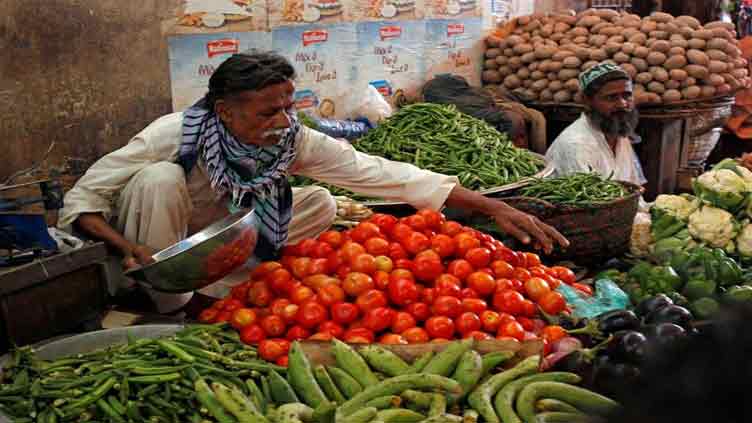Weekly inflation up 1.30pc as people are caught in snowball effect

Business
the wheat flour price has surged by 131.40pc on year-on-year basis
ISLAMABAD (Dunya News/Web Desk) – The Sensitive Price Index (SPI) rose by 1.30 per cent when compared with the previous week, as the people in Pakistan are joggling with their ever depreciating financial resources to meet their daily needs amid sharp rise in petroleum prices and food inflation.
One has to take in account the increase in transportation cost after the persistent increase in POL prices during the past year-and-a-half or so given that it directly effects the commuters venturing out daily for work as well as the prices of goods they buy, especially food items.
However, the SPI has been witnessing a sizeable decline since reaching the highest ever level of 48.35pc on May 4. But the overall inflation with the International Monetary Fund (IMF) predicting the Consumer Price Index (CPI) for the current fiscal year to be 25.9pc against 29.6pc in 2022-23.
According to the latest data released by the Pakistan Bureau of Statistics, the SPI witnessed a 29.83pc jump when compared with the same week [ending Aug 3] last year after the government decided to hike the petrol and high-speed diesel prices by Rs19.95 and Rs19.90 per litre besides a substantial increase in the rate of liquefied petroleum gas LPG too.
Read more: Pakistan fourth most vulnerable country as El Nino threatens emerging economies
It was the last fortnightly review by the outgoing government, whose constitutional term is set to expire on Aug 12, with Finance Minister Ishaq Dar saying that the move was in national interest given the $3 billion IMF deal reached recently.
The SPI covers 51 items of which the prices of 23 were up, seven down and 21 remained unchanged when compared with the previous week.
As such, the largest week-on-week rise – 16.85pc – in prices was observed in the case of tomatoes followed by chillies powder 7.58pc, garlic 5.71pc, onion 5.50pc, powdered milk 5.17pc, eggs 3.86pc and rice basmati broken 2.06pc.
But it comes to the year-on-year comparison, the wheat flour price has surged by 131.40pc and that of rice basmati broken by 82.86pc and rice Irri-6/9 by 72.73pc. It is indeed an alarming trend given that these are the staple food in a country where the daily diet of the overall majority already lacks nutritional value and suffers from very little consumption of protein.
Add pulses/ lentils, chicken, eggs, potatoes and other vegetables to the equation and you will see that Pakistan is moving towards a much bigger food insecurity crisis.
Meanwhile, the situation will further worsen given that Pakistan has to implement the harsh IMF conditions that revolve around higher prices of utilities and fuel, making it near impossible for the inflation-hit people to sustain the required food intake.

